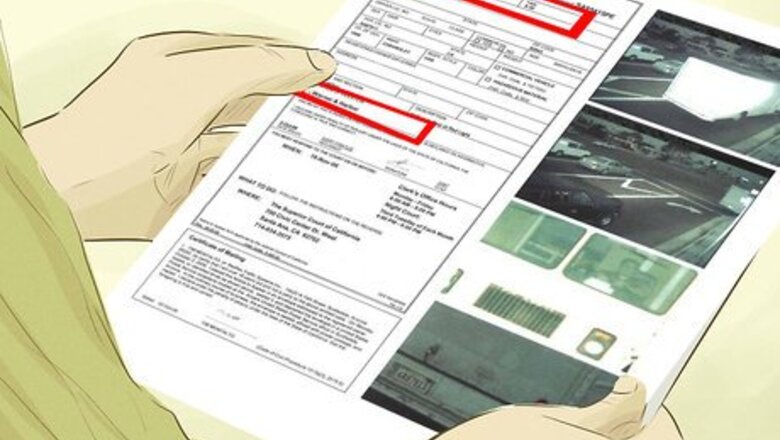
views
X
Research source
– which means disputing your traffic camera ticket may be easier than you thought.
Examining Your Ticket
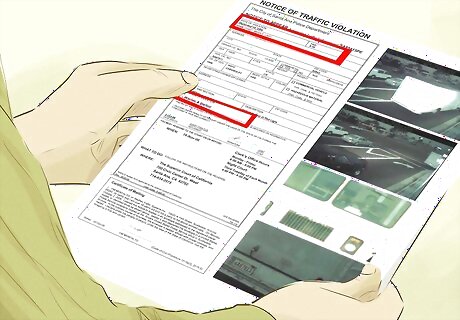
Check the date, time, and location of the ticket. Because camera tickets are sent to the owner of the car, not the driver, make sure you actually were driving the car when the ticket was issued. Generally, the prosecutor must prove that you were driving in that location at that date and time. If someone else borrowed your car, you can't be prosecuted. However, understand that some states such as New York treat red-light camera tickets like parking violations, holding registered owners liable rather than the driver specifically. Make sure you check the red light law in the jurisdiction where you got the ticket. If you were driving your car, try to reconstruct the scene and remember what you were doing or what was happening at the time, and write down any details you remember. For example, you may have been making a legal right turn on red when the camera took the photo. If you were making a legal maneuver you should be able to get the ticket dismissed.
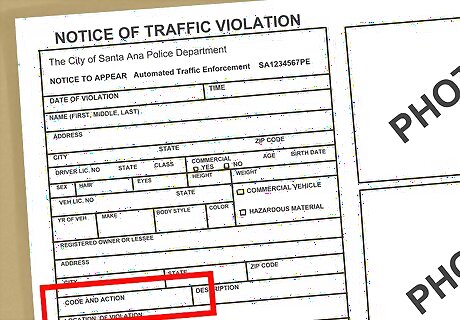
Make note of the exact code section you're cited for violating. Read the law and make sure you understand both its elements and the penalties for violation. Make sure if penalties are listed in the code section that they match the fines or penalties assessed on your ticket. Remember that it is the prosecution's burden to prove each element of your violation – it's not your responsibility to prove that you didn't do it.
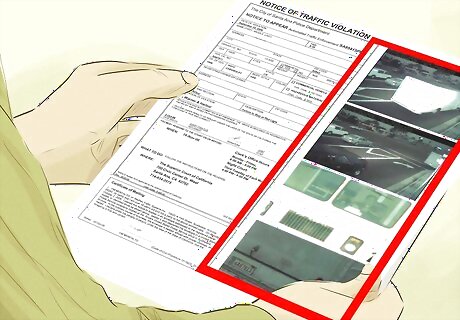
Review the photos. If the notification you received included photos, review them to confirm that its your car in the photo, and that the photo is clear. Your best defense may turn out to be the blurriness of the photo. If the license tag isn't clearly visible, it may be difficult to confirm that the car is yours. If there's no clearly identifiable photo of you in the driver's seat, this may present another avenue of defense. You will be under oath, so you can't argue that you weren't driving if you were – however, you can argue that the prosecution can't prove you were driving, or has no evidence that you were driving. This will get you off the hook if you live in a jurisdiction that requires tickets follow the driver, not the registered owner of the car. If photos were not included with your citation, you may need to wait until after your trial is scheduled to request copies from law enforcement.
Pleading Not Guilty

Plead by mail or online, if possible. Some jurisdictions allow you to respond to the citation either by mail or online, rather than going to a live arraignment in traffic court, for less serious traffic violations such as speeding or running a red light. You must plead not guilty if you want to dispute the traffic camera ticket, and you can't pay the fine listed. In some jurisdictions, paying the fine is considered an admission of guilt. Check your citation and make sure you plead not guilty before the deadline. Typically you'll have 30 days to dispute the ticket, but the time period may be shorter.
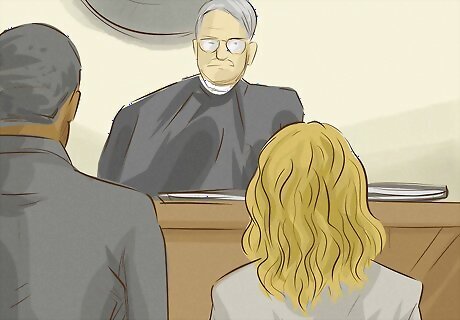
Appear at arraignment. If you have no choice but to appear in traffic court if you intend to plead not guilty, show up at the date and time listed on your citation. This also may be called a first appearance or a notice hearing, depending on your jurisdiction.
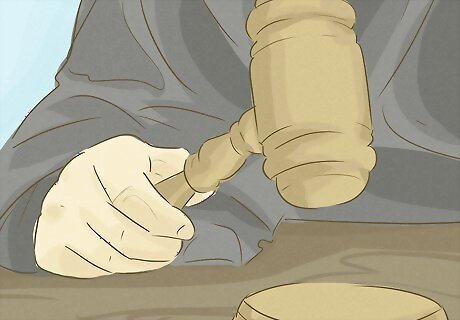
Request a formal hearing. When you plead not guilty, demand a full formal hearing or trial. When you request a full trial, you also may be required to attend other hearings such as a pre-trial hearing or mediation. Attend those as required, but don't accept anything less than a full dismissal of your traffic camera ticket.
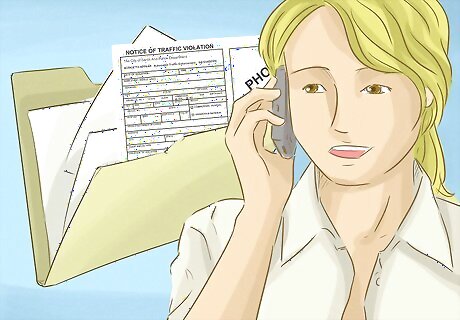
Request production of documents. Now that you have a court date, call up the local police department or other law enforcement agency in charge of the camera used to issue your citation. If photos were not included with your citation, you'll need to request copies of them. You also should request full maintenance records for the camera and the traffic light or speed monitoring system to establish that they were regularly monitored and maintained. If their accuracy wasn't tested within a short period of time before your ticket was issued, the photo is potentially unreliable as evidence.
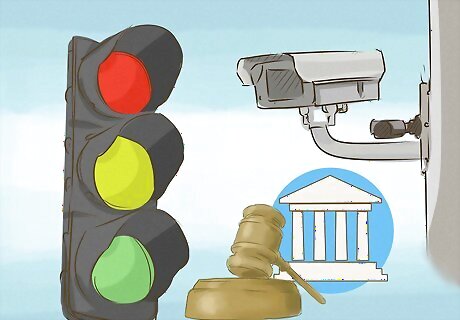
Research the applicable law. Look for cases in your city or county about traffic cameras, and see if any appellate court decisions have ruled on the legality of traffic camera tickets. Aside from the camera itself, there may be other defenses that are recognized by law. For example, some states have specific rules about where warning signs must be posted for traffic lights. If the warning signs were obscured or not present, you'd have a defense. Some states recognize a necessity defense for speeding. Since obviously a camera cannot tell why you were speeding, you may be able to get out of the ticket this way.
Making Your Defense
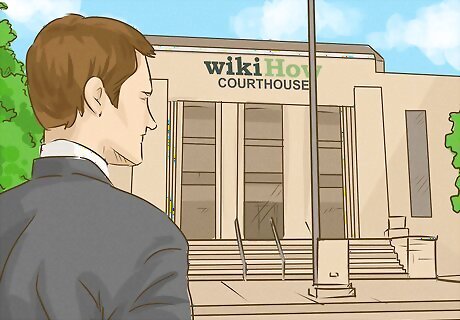
Appear at your scheduled hearing. Arrive at the courthouse on the day of your hearing with copies of any documents you intend to use as evidence in your defense. Make sure anything you bring with you is organized and you have a clean, professional appearance. Treat the judge and all courthouse staff with respect. Don't do anything to give the judge the opportunity to make a snap judgment that you are untrustworthy or have an attitude problem.
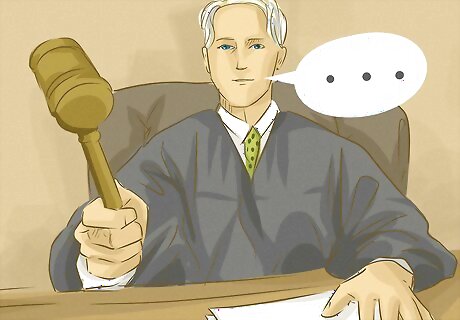
Listen while the prosecutor presents the case against you. The prosecutor will have the first opportunity to speak in your case. Listen quietly, making notes where something is said that you want to bring up later, but do not interrupt or speak directly to the prosecutor.
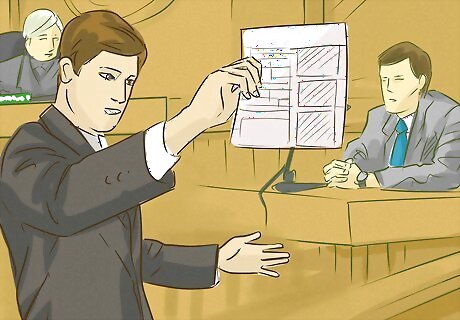
Challenge the admissibility of the photograph as hearsay. In some jurisdictions such as Broward County, Florida, a red light camera photo is considered hearsay. Basically, hearsay is defined as an out-of-court statement presented in court to prove the truth of the matter asserted. In this case, the photo is an out-of-court "statement" that prosecution is attempting to use to prove you violated the traffic law. Hearsay evidence is inadmissible unless it fits into one of the exceptions carved out of the rule. However, there are more than two dozen hearsay exceptions. Some courts have fit traffic camera photos into these exceptions, but others have not. Research the issue to find out if this objection is available in your jurisdiction.
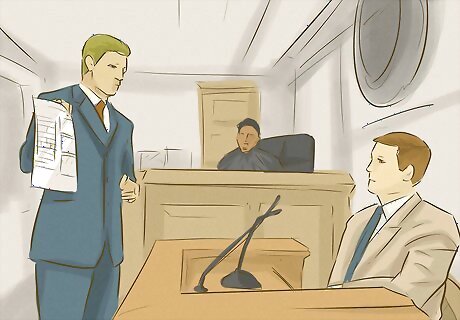
Assert your right to confront witnesses. The Sixth Amendment of the Constitution guarantees you the right to cross-examine witnesses. Unless a witness appears who maintains the record and system associated with the camera, you do not have this opportunity.
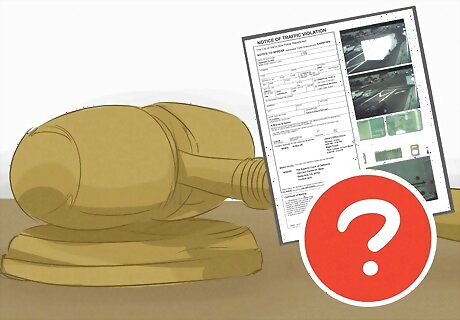
Dispute the authenticity of the photograph. If no one from the company that maintains the camera shows up to testify, object to the use of the photographs for lack of foundation. Likewise, if you have a camera ticket for speeding, the company or officer who maintained the camera and the speed detection equipment must appear in court to testify or the photo has no foundation to be admitted into evidence. For the prosecution to rely on the photos, it must present evidence that the camera that took the photo, the system that connected it to the traffic light, and the traffic light itself were functioning properly. Without establishing this foundation that all of these machines are reliable, the photo is not reliable and cannot be admitted into evidence.
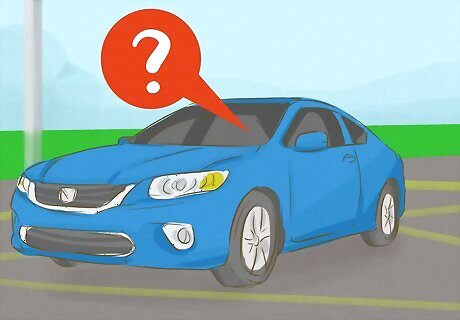
Attack the lack of evidence. If the photos are clear and the judge allows them, but none of them clearly show you driving, you have a defense that the prosecution cannot prove it was you driving the car. The photo also provides no proof that the traffic light was functioning properly. If prosecution can't prove the traffic light was functioning properly, they can't prove that you ran the red light. These same arguments apply if you have a camera ticket for speeding. Prosecution must prove that the speed detection system was functioning properly for the photo to be evidence that you were speeding.
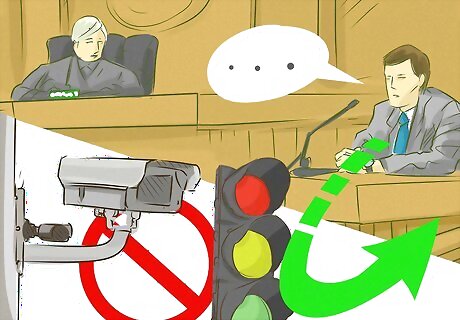
Raise any other possible defenses. If your attack on the camera fails and the photos are admitted as evidence, use any other defenses you may have found in your research that applied in your case. You don't have to deny guilt for many of these defenses to work. For example, if you use the defense that you acted out of necessity to avoid harm to yourself or others, you're basically saying that you committed the violation but it was for a good reason.











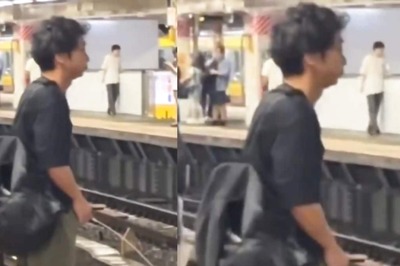

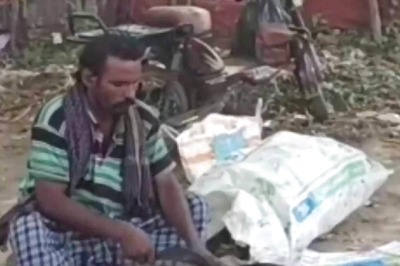

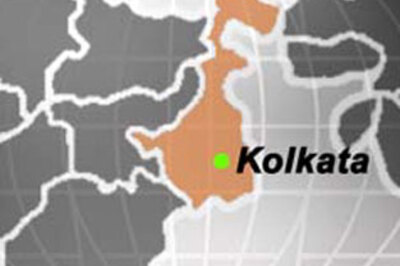

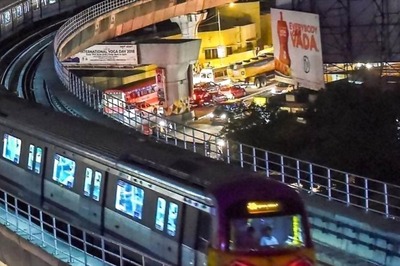


Comments
0 comment